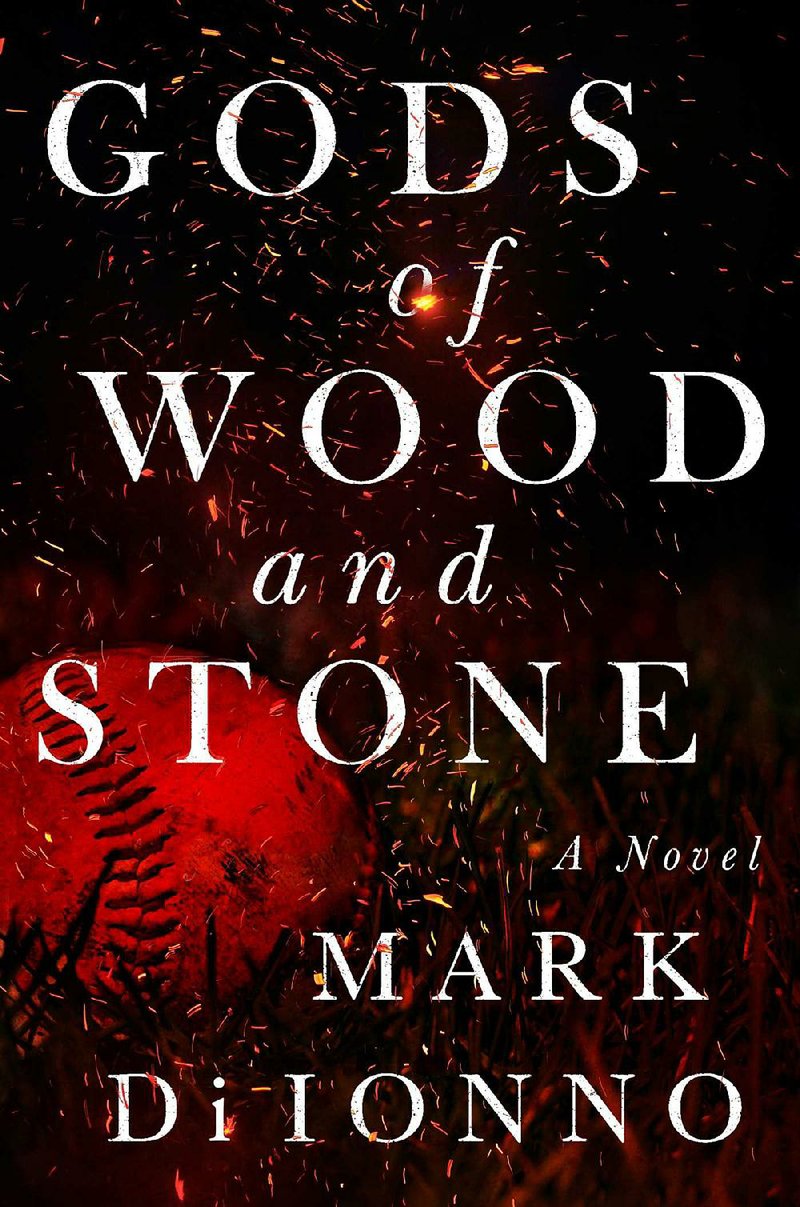Mark Di Ionno, a newspaper columnist for the New Jersey Star-Ledger, has written a fascinating book in which is embedded a fierce and thoughtful critique of our popular culture.
Gods of Wood and Stone (Touchstone, $26) takes its title from a Bible verse that in the King James version reads: "And there ye shall serve gods, the work of men's hands, wood and stone, which neither see, nor hear, nor eat, nor smell."
The title's meaning isn't first apparent, although you might think it is, since the novel first presents as a straightforward story about the inevitable collision of two large, physically imposing men: former Boston Red Sox catcher Joe Grudek, who has just been voted into the Baseball Hall of Fame, and Horace Mueller, a historian who turned away from academia to become the village blacksmith in a living history exhibit at the Farmer's Museum, which Wikipedia calls "probably the second best-known attraction" in Cooperstown, N.Y., after the Hall of Fame.
Horace lives authentically in a drafty farmhouse with his disillusioned wife, Sally, and 14-year-old son Michael, a baseball prodigy who consumes a lot of electronic media. He is country strong from working with hammers and anvils, a physically vital man with a streak of Luddism. Grudek lives alone in a luxury condo on a golf course provided him by a real estate developer. Five years retired from baseball, he received the rare honor of being voted into the Hall of Fame in his first year of eligibility.
Grudek is as broken as Horace is hale; more than 30 years behind the plate left him with gnarled and busted hands, bad knees and hips. He eats Advil. He was a tough player, a lunch bucket guy with a couple of brutal on-field episodes in his portfolio. The fans "loved him for that toughness. They loved him for being white."
It shouldn't surprise us that Grudek feels himself a hollow man, that he feels phony, that he holds contempt for those fans who hoot at him and pay for his autograph. But Di Ionno is too smart and too honest to leave it at that, and Grudek slowly begins to accumulate a little ballast as he begins to think about the speech he's expected to give on the occasion of his induction to the HOF.
Meanwhile, Horace's life is coming apart, as lives do. Slowly and then suddenly. He grouses about his son Michael's attachments to modernity, the way the kid seems to have bought into what Horace sees as a sucker bet on athletic glory. Meanwhile Sally is hiding the facts about their family's finances from him. They are behind on their mortgage, their credit cards are maxed out. She's depressed and checked out, just waiting for the right moment to leave.
She thought Horace would be a professor at Cornell by now. That they would have a certain type of life. But he wants to bend iron, to wear a beard and long hair like men did in the 1840s. And he wants a son that looks up to him, that values his heritage and recognizes the falsity of idols like Joe Grudek.
The novel alternates between the perspectives of these two men, with Grudek, who never really left New Jersey except for his games, exploring his past. There is one moment of which he is particularly ashamed that he worries will come back to haunt him, a night when his 20-year-old self did something selfish and criminal. And there was a girl in high school he remembers he could talk to some.
And Horace, who chafes at everything from the promotional billboards erected around town to his bosses' attempts to boost attendance, realizes he has lost his wife and his home but means to keep his son. So he makes a bargain. In addition to his blacksmith's role, he will take on an intern's job for the summer -- he'll lecture tourists on the Cardiff Giant, the 19th-century hoax that provides the Farmer's Museum with its foremost attraction -- if they hire underage Michael, so he might have a chance to be near the boy and steer him toward deeper understandings.
Horace at first resents doing docent's work; but as he re-reads a paper he did on the giant as a student he understands that the roots of what he calls "American Rubism" -- the credulous consumption of popular culture, with its celebrities and sports stars and mindless maleficent diversions -- wrap around the stone Goliath. This is an insight worth sharing. This is purpose.
So he doesn't even protest too much when Michael decides he'd rather work the summer at a souvenir shop that sells personalized bats to tourists.
There is an inevitability to the eventual showdown that might be mistaken for predictability. Maybe Di Ionno recognized this and the prologue is an attempt to take some authorial notice. In any case, it would be a mistake to equate Di Ionno's clear, understated style for a breezy read. This is Jeremiah, weeping for Jerusalem.
Email:
pmartin@arkansasonline.com
blooddirtangels.com
Style on 07/29/2018
